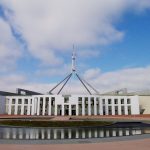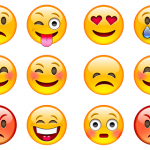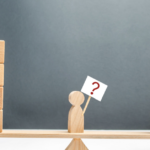Australia Day or Invasion Day?

The 26th of January marks the landing of the First Fleet at Port Jackson in 1788.
Millions of Australians celebrate this anniversary each year – usually by throwing a traditional Aussie barbecue, heading down to the beach, or playing a game of backyard cricket.
But for some Australians, the occasion is a more sombre one – marking the day our Indigenous people were robbed of their traditional lands by the British. Aboriginal people around the nation have historically commemorated the day by hosting protests around the country to commemorate ‘Invasion Day.’
Some have suggested that we should change the date out of respect to our Indigenous people, and instead celebrate the public holiday on an alternative date which promotes inclusiveness and unity amongst all Australians.
So what is the meaning behind Australia Day – and should we still celebrate a day which marks the beginning of the destruction Indigenous culture?
The Case for Australia Day
Australians love a public holiday – an opportunity to catch up with friends and family away from work.
For many, the date is also a wonderful opportunity to collectively embrace our national identity and the things which make Australia great’– including our sense of ‘mateship’ and giving people a ‘fair go.’
The date is also significant for the thousands who take the Pledge of Commitment to become Australian citizens, with scores of citizenship ceremonies taking place around the country. The National Australia Day Council, which coordinates the ceremonies, states :
‘Australian citizenship is more than just a ceremony and forms an important part of Australia Day celebrations. It symbolises our unity as a nation. It represents commitment to Australia and its people, the values we share and our common future. It also symbolises the sense of belonging to the country where we have been born or where we have decided to make our home. Australian citizenship is a shared identity, a common bond which unites all Australians while respecting our diversity.’
The Council points out that Australia Day is an opportunity to:
‘…celebrate what’s great about Australia and being Australia. It’s the day to reflect on what we have achieved and what we can be proud of in our great nation… the day for us to re-commit to making Australia an even better place for the future.’
On its face, this statement may seem fairly innocuous – but some believe it has darker undertones by implying that the loss of Indigenous culture is a cause for celebration.
Alternative Solutions
There have been many attempts over the years to ‘change the date’ to one which all Australians can celebrate proudly. This would follow the approach taken by nations such as New Zealand, which celebrates its national day on 6th February to mark the signing of the Treaty of Waitangi between British settlers and the traditional Maori people.
A number of alternative dates have been put forward over the years, including the 27th of May, which marks the success of the 1967 Referendum which gave Aboriginals constitutional recognition, allowing them to vote and be included in the census.
Another proposed date is the 26th of May (National Sorry Day), which commemorates the horrific treatment of our Indigenous people and the forcible separation of their children during the ‘Stolen Generation’.
A further suggestion is the 1st of January – the day on which Federation commenced in 1901, and when Australia formally became a nation. The New Year’s eve fireworks could have extra special meaning, and perhaps we could be given an extra day’s leave.
But while politicians have recognised issues raised by the Indigenous community, they have consistently indicated support for the existing date. A date change has also lacked public support, with 79% of respondents in a 2004 Newspoll respondents saying they were not in favour of a date change.
Yet another suggestion is for Australia Day to be renamed ‘Survival Day’. In recent years, a number of Survival Day marches have taken place on Australia Day to recognise the continuing existence of Indigenous persons despite systemic discrimination and great adversity.
National Indigenous TV explained the concept of Survival Day:
‘In contrast to Australia Day events, which have historically been organised with little or no consultation with local Aboriginal people, the first Survival Day festivals were initiated by Aboriginal communities in Sydney and marked a celebration of our achievements and culture. Today many Survival Day events are held around the country, celebrating our people, culture and survival.’
No matter how we celebrate today, perhaps we should spare a thought for our Indigenous brothers and sisters, and be mindful of what the day means for them.
From all the team at Sydney Criminal Lawyers®, have a safe and happy Australia day.
Receive all of our articles weekly
Author






